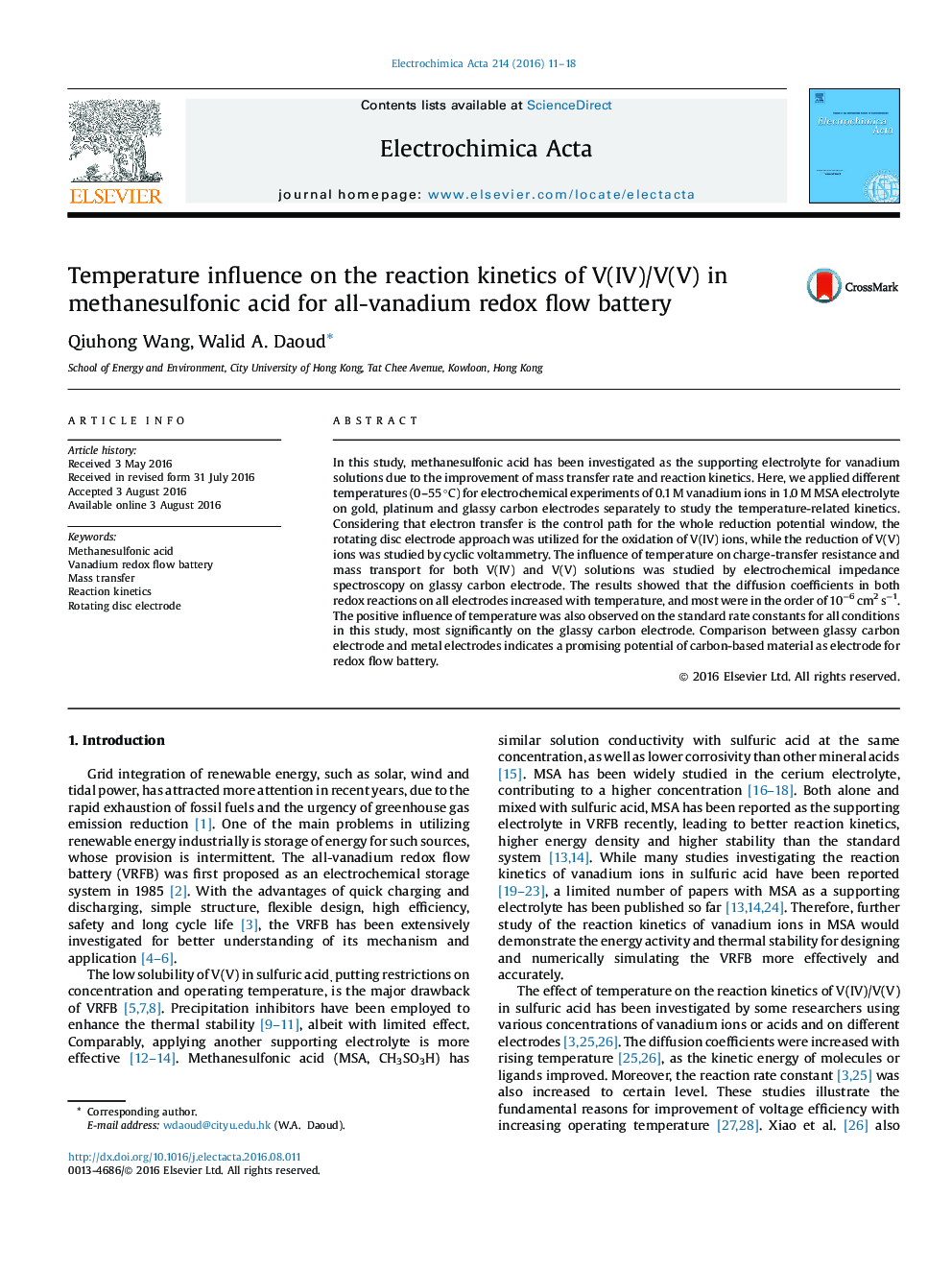| Article ID | Journal | Published Year | Pages | File Type |
|---|---|---|---|---|
| 4767699 | Electrochimica Acta | 2016 | 8 Pages |
Abstract
In this study, methanesulfonic acid has been investigated as the supporting electrolyte for vanadium solutions due to the improvement of mass transfer rate and reaction kinetics. Here, we applied different temperatures (0-55 °C) for electrochemical experiments of 0.1 M vanadium ions in 1.0 M MSA electrolyte on gold, platinum and glassy carbon electrodes separately to study the temperature-related kinetics. Considering that electron transfer is the control path for the whole reduction potential window, the rotating disc electrode approach was utilized for the oxidation of V(IV) ions, while the reduction of V(V) ions was studied by cyclic voltammetry. The influence of temperature on charge-transfer resistance and mass transport for both V(IV) and V(V) solutions was studied by electrochemical impedance spectroscopy on glassy carbon electrode. The results showed that the diffusion coefficients in both redox reactions on all electrodes increased with temperature, and most were in the order of 10â6 cm2 sâ1. The positive influence of temperature was also observed on the standard rate constants for all conditions in this study, most significantly on the glassy carbon electrode. Comparison between glassy carbon electrode and metal electrodes indicates a promising potential of carbon-based material as electrode for redox flow battery.
Keywords
Related Topics
Physical Sciences and Engineering
Chemical Engineering
Chemical Engineering (General)
Authors
Qiuhong Wang, Walid A. Daoud,
